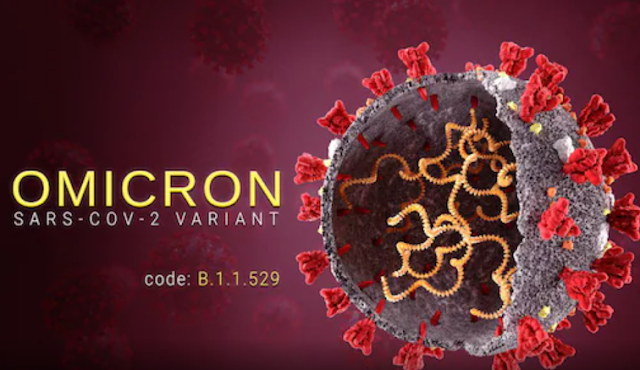How do Omicron's symptoms differ from those of Delta and previous coronavirus variants?
Sore throats and runny noses are increasingly common in people who have been vaccinated with Omicron.
But O'Micron patients reported fewer cases of fever, cough, and loss of taste or smell.
Almost as soon as Omicron started spreading, doctors noticed some differences in the patients' symptoms compared to delta variants.
Some symptoms — such as sore throat, sneezing, and a runny nose — were increasingly common. But the previous hallmarks of COVID-19 — such as fever, cough, and loss of taste and smell — have waned.
Zoe's study uses a smartphone app to record how hundreds of thousands of people across the UK are feeling every day. It provides a comprehensive look at how symptoms of COVID-19 have changed throughout the pandemic - most notably, with the emergence of delta and omicron variables.
Some symptoms like runny nose, headache, fatigue, sneezing, and sore throat were the top five symptoms among people in the UK who had tested positive for COVID-19 in the past few weeks. Meanwhile, 44% of people reported a persistent cough, and 29% had a fever. Loss of taste or smell was less common.
Omicron cases often begin with a sore throat, headache, and congestion.
Many patients started with a dry, scratchy throat that caused sharp pain when swallowing.
"It's a very prominent symptom," said Moreno, MD, associate professor of medicine at Yale University School of Medicine. "
He added that a sore throat is often associated with sinus congestion and a headache, followed by a cough the day or so later. In a news briefing in December, Ryan Noach, chief executive of Discovery Health, South Africa's largest private health insurer, said O'Micron patients typically reported an itchy throat first, followed by nasal congestion, a dry cough, and body aches.
Sore throat
Loss of smell was also relatively rare among O'Micron patients.
By contrast, Moreno said that fatigue became more pronounced among outpatients, who often reported feeling tired and achy.
"I've seen a lot of people report fatigue as one of their main symptoms," he said. "They're guys who can usually skip things. They need rest. They need sleep. They take more naps."
Why do symptoms of Covid-19 disease change?
Runny nose
Scientists are not sure why the symptoms of COVID-19 have changed.
Vaccines help reduce disease severity, but Omicron may be a less virulent virus on its own. Two recent, not peer-reviewed, laboratory studies suggested that Omicron could be less effective at attacking lung cells than previous variants. Another yet-to-be-reviewed research, published Wednesday, found that Omicron inherently reduces the risk of severe hospitalization or death from COVID-19 by 25%.
However, doctors note a precise gradation of symptoms based on a person's vaccination status.
"Unvaccinated people go through a cycle that is a bit longer and tougher," Moreno stated. "People who are vaccinated have a midstream course. Enhanced people, in many cases, are like an old cold: sinus symptoms, sore throat."
Moreno said that before Omicron, his COVID-19 patients felt sick for about 10 to 14 days. He said that people who received a booster dose recently reported shorter episodes of illness than those who received lower doses or no doses at all.
"Those individuals who are reinforced, within five days, seven days of onset of symptoms, their energy level returns," he said. "Their symptoms have been resolved."

Post a Comment